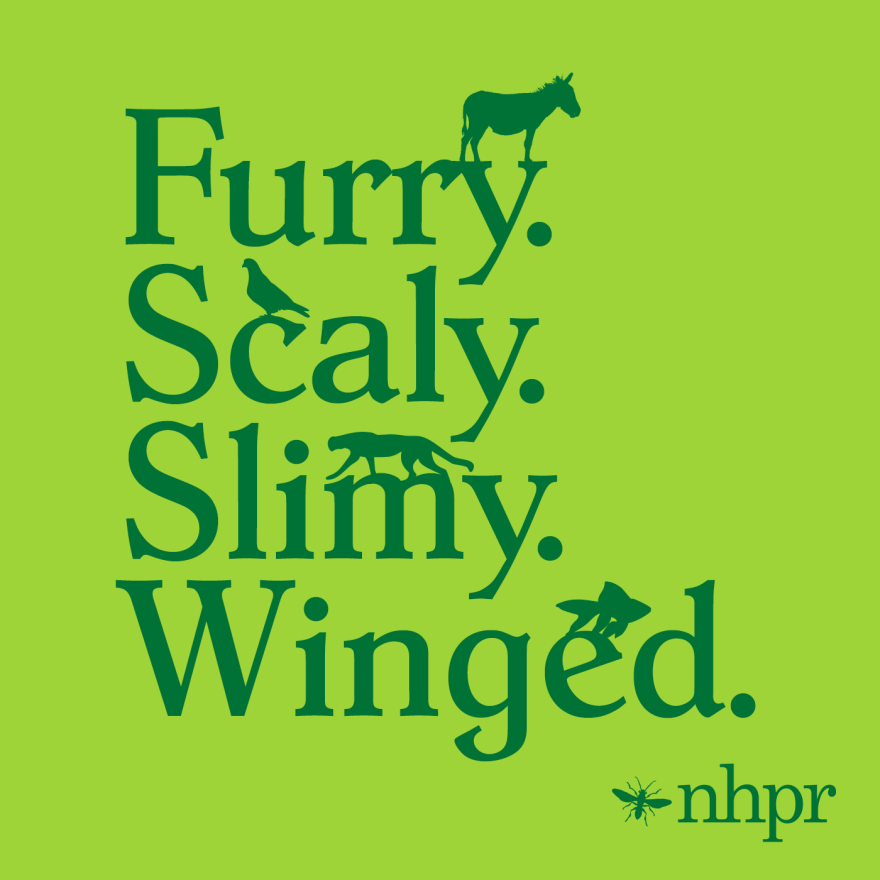In New Boston, Saunders Pasture and the Betsy Dodge conservation fields are getting a makeover. But it’s not a crew of landscapers managing this project — it’s a herd of fifty sheep belonging to Kelly McCutcheon. She runs Broken Boat Farms, a livestock landscaping business.
“We do vegetation management for invasive native species, we do field reclamations, solar arrays, and people call me to rent my goats and my sheep,” McCutcheon said.
The New Boston Conservation Commission began a 10 year contract with Broken Boat Farms last summer, because of protections in place for ground nesting birds. The commission can’t mechanically mow in April through November, but McCutcheon’s sheep can graze on invasive species without disturbing the nests.

Her livestock can also work projects that would make for intense manual labor. At Gunstock Mountain Resort, her sheep were able to get to hard-to-reach hills.
“They were paying companies to come in and do it, but the companies were only going a third of the way up the hill because then it got too steep,” McCutcheon said.
Her sheep also graze on invasive species like poison ivy in places where people can’t or choose not to use chemical treatments.
“Our first sheep client hired us because he had lost so many friends to Agent Orange during Vietnam . . . he won't use chemicals for anything,” McCutcheon said.
According to McCutcheon, livestock landscaping is considered more sustainable because it doesn’t utilize chemicals or diesel. When the grazing season is over, she also uses some of the sheep for meat and wool.
On more overgrown properties like Saunders Pasture, McCutcheon’s animals will return for multiple seasons in order to weaken the invasive species over time. When her livestock eat the plants, those plants use more energy to grow new leaves, as opposed to storing energy in the roots for the winter.

“If they don't conserve enough energy for the winter, they die,” she said.
Broken Boats Farm has been booked for the summer since April, which Kelly attributes to her pun-filled jingles and word of mouth. In 2023, she won an award for rural business owners, which further fueled her growth.
McCutcheon started the business during the COVID-19 pandemic, after losing her restaurant job. At the time, she had just a handful of goats and sheep. The idea began with a question from her neighbor.
“He was like, ‘Hey, allegedly, there's a rock wall on my property . . . Do you think your goats and sheep could find it?’ I was like, ‘I don't know, let's find out.’”
Raised in Boston, McCutcheon says she didn’t consider owning farm animals until she studied abroad in Ireland.
“People just had cows and sheep sitting in their front yards, just like laying down chewing grass,” she said. “I was like that: I want to come home to that every day.”





